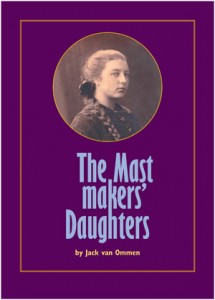Seventy-five years ago, March 30 1945 was Good Friday. Near midnight on Holy Thursday eve, two dripping wet crying boys rang the doorbell at their aunt and uncle’s home in the old center of Amsterdam. One of those little boys was me. (Plagiarizing Kamala Harris…https://www.youtube.com/watch?v=G0WTx_ady48 ). My twin brother and I had just turned 8, a month ago.
The winter in Holland in 1944-’45 is still reverted to as “The Hunger Winter”. Particularly in the major cities there was little food. Our father and my brother and I had been staying with our grandparents in Amsterdam. Our three year older sister was living with an uncle and aunt in Alphen at this time. The pastor of our Christian Reformed church had arranged for temporary lodging with families in the countryside for a group of 150 children from our neighborhood and the Christian elementary school.
These are excerpts from my father’s diary he kept ever since our mother had been arrested the end of April 1944.
March 29. Early this morning, Saakje (sister in law) showed up at my office to tell me that Jan and Jaap had been dropped off at their house on the Singel at 11.30 p.m. by a police man. The farmer had received other children and then sent our boys away.
I thought that their concerns about the twins’ behavior had been addressed during my recent visit on the twins’ birthday.
It seems like a very strange way of doing things. Apparently, the driver, who took them back to Amsterdam, had a letter on him for Pastor Kunst. The boys looked o.k. but unkempt. They arrived in tears on the Singel, dragging their blankets over the wet streets. They had one piece of luggage with them. The farmer had put them under a tarp in the back of an open pick-up truck but the boys had not had enough cover from the rain and the cold night. They had left in the evening in a hurry. The driver had dropped them off at the Police Station on the Adelaarsweg in Amsterdam North. One of the Policemen had accompanied them to the Police Station near the Koepelkerk where the twins recognized that they were near the Singel and then had the policeman ring the bell at nearly midnight at their aunt and uncle on the Singel.
March 30. Good Friday. Went to see Pastor Kunst. He had received the letter from Wieringermeer and was not very happy with the way this was handled. He had already had other unpleasant experiences with his contacts in the Wieringermeer. Kunst has given them a piece of his mind and accused them of committing an unpatriotic act towards the van Ommen family.
This is the part from father’s diary where our story begins:
February 6. This morning on my way to work, I ran into Pastor Kunst. He was on his way to talk to a barge skipper. Kunst had found a way to place 150 children from the church families on farms in the Wieringermeer[1]. I told him that I would like our boys to go there as well. He would look into that. They needed to be on the dock the next morning at 5 a.m. I had quite a job making the arrangements on such a short notice. Jaap and Jan had to be picked up from their grandparents and then I brought them to Siebold on the Singel, for the night, which was just a short walk to the dock. They had to get up at 4 a.m. In the Damrak, near the Central Station, lay a large Tjalk[2]. Straw had been spread on the cargo hold floor. The children were all stretched out on the straw.
The children are in good hands. They are headed for the towns of Middenmeer and Slootdorp. The mood was good and our boys enjoyed the adventure as well. They recognized many of their Dr. de Moorschool friends who they had not seen since July. Jan was a bit concerned that he would not be home for his 8th birthday. One of the children managed to fall into the ice-cold water while trying to board. The father jumped right in and both of them stood soaking wet back on the quay.
The barge took off at 6.30. A tugboat took the sailing barge in tow. I miss them but they’ll have much better chances to get the food that has become so scarce here in the city. It also became a bit too busy for their grandparents. It has become eerily quiet around here now. February 13. We have received a letter from the temporary foster parents of the boys. They are staying with a farmer family Dekens. There are five children on the farm in ages from four to eighteen. They are very happy there. I may come and visit on their birthday.
Jan and Jaap also added their letters. From Jan a very short message, Jaap wrote in more detail. They were locked in the hold for five to six hours. On arrival that night, the children were all quartered in a hotel in Middenmeer. They get to walk one of the horses, there are chickens, pigs and rabbits. They can stay until the end of the war. The boys had brought each a couple of sandwiches for the trip and since several of the children had nothing to eat, they shared them. Jaap wrote that this prompted one of the older Mulder boys to conclude that our parents were NSB members (the Dutch Nazi party) because they were the only ones who would have access to bread. There were eleven hungry mouths to feed at the Mulder family who live about five doors up the street from us.
Yesterday, I came upon a young boy, I guessed him to be about nine years old, who stood there crying. I asked him: “What’s the matter, young man?” He replied: “I am hungry!” That just breaks your heart. People are coming through the neighborhood begging for bread or something to eat. I read in the newspaper that the death count for the week from January 26 to February 4th is 506. The same week last year was 169.
February 19. I helped unload a barge with a load of tulip bulbs[3], I received a little extra for my efforts and came home with 50 kilos.
February 21. Mrs. Heringa (Anna Heringa-Jongbloed) has died in Ravensbrück. One of the women in Ravensbrück has been released.[4] I hope to be able to get in touch with her.
February 23. I am busy cleaning the tulip bulbs; the flower stem has to be removed otherwise they continue sprouting. It is a good starch substitute, mashed like potatoes with a few carrots; tastes o.k.
Pastor Kunst brought me a letter he had received from the church commission in Middenmeer. In this letter, they point out that the twins did not have it all that bad with their grandparents in Amsterdam and did not lack anything. I am going to see the farmer family this Thursday for Jaap and Jan’s birthday and I will try to clear this up. It is really too bad that this had to happen.
February 27. I left at 7.30 a.m. for Middenmeer. Siebold lent me his bicycle. Mine has given up the ghost. The weather was good, a stiff breeze, via Zaandam, Purmerend. I reached Hoorn at noon where I ate a sandwich. At 3.30 p.m. I arrived in Middenmeer. It is a beautiful modern farm. The boys had gone to Kolhoorn with the horse-drawn wagon. They came home at 6 p.m. They looked fine.
They have found a very good home. Very kind people, they came to the Wieringermeer from Groningen. The children also treat the boys very well. Jan spends the whole day with the farm hands on the land. He has learned the names of all the animals.
I managed to clear up the farmer’s complaint, that had been reported in the letter to Pastor Kunst, to his satisfaction. The next day was their birthday. The boys had dressed in their Sunday clothes. Mrs. Dekens had baked a cake for their birthday.
March 1st. I took off again at 8.30 a.m. The whole farm crew waved me farewell and told me that I could come back any time. Mrs. Dekens gave me six ham and cheese sandwiches for the road and two pears, which I have saved for Rientje[5] and Moe. They also gave me a seventeen-pound sack of wheat. I enjoyed the couple of days I had with them. The wind was strong on the way back, rain showers; I made it back home by 4.30 p.m. Just before Hoorn there was a German road block, but I managed to find a way around it. There is hardly a child left in the Alblasstraat after the transport to the Wieringermeer.
The letter:
R.J. Ridder Accountants
Middenmeer, February 22, 1945
The very reverend Mr. Dr. P.G. Kunst,
Dear Dr. Kunst,
As spokesperson for the church commission, I wish to advise you of the following incident with the van Ommen children, Jan and Jacob, who have been given a home with Mr. K. Dekens, Schagerweg, Middenmeer. These two children were living with their grandparents before they were assigned a home here. From their remarks, it has been clearly established that both boys did not lack anything, but instead were accustomed to what, we would call in these times, festive meals; at their grandmother white bread was regularly served, they had vegetables with every dinner. When they are served potatoes with ham, they insist on having vegetables with it, because that is what they are used to at their grandmother. This is their general attitude and the reason that their foster parents do not wish to keep them any longer.
As a matter of fact, this sort of boys should never have been sent to us. There are thousands of children who have better reasons to be sent here. No doubt, you will share our conclusions. The Dekens family will shortly be receiving other children from Haarlem in the place of the van Ommens so that fortunately no children will become the victims of this problem.
Would you, please, get in touch with the parents or grandmother to have them send someone to come and get Jan and Jacob?
Fortunately, we have not had any other similar cases to report.
In anticipation that you will look after this matter, I am, with kind regards,
Your dv.
Later on, I heard from the boys that they had been a little too inquisitive. With the aid of the five-year-old son, Klaas, they had, for instance, discovered a secret tunnel from the farm that led underneath the road the farm fronted on to the canal that ran parallel with the road. This way the farm workers, who were hiding on the farm from the German forced labor service, could escape to a rowboat that was moored at the end of the tunnel in the canal. They also found an ambulance that was buried in the hay stack to keep it out of the hands of the Nazis.
This story is also part of my books: www.TheMastmakersDaughters.us and www.DeMastmakersdochters.nl
[1] Wieringermeer was one of the very first “polders”, reclaimed land from the Zuider Zee. About 30 miles north of Amsterdam.
[2] Tjalk is a traditional Dutch flat bottom, lee boards, sailing barge.
[3] Tulip bulbs became a sought-after substitute for potatoes.
[4] Most likely this was Corrie ten Boom, who was released on January 1st. Or Hebe Kohlbrugge released January 1945. At this time Dick van Ommen still does not know any better than that his wife is still in Ravensbrück instead of Dachau.
[5] Rientje is Rennie’s youngest sister and had chronic health problems in that period.






